Subscribe to the Newsletter
If you are interested in understanding how Traditional Chinese Medicine can improve your life sign up to my newsletter for the latest updates.

Key Learning Points
Qi Stagnation works rather like a roadblock, or a traffic jam. In fact that’s how I describe its action in my book, see sidebar, and below.
Frustration, tension, hindrance and STRESS – all examples! It’s an idea from which many acupuncturists have made a fortune!

And they deserved it!
To understand stagnant qi, you first need to understand Qi. As you’ll realise when reading the linked page there, Qi underlies the universe. It’s a fundamental building block, preceding matter. If you’re reading this, you have it. For health, you must allow it to move and change. Among the worst things you can do are waste it, or block it.
Blocking it, and the symptoms and diseases that arise from blocking it, are what this page is about.
At this early, temporary level, how would you notice it in someone else? That depends on the individual.
How do people show mild, passing irritation? Some people don’t show it all. Others purse their lips, or frown, or tense their jaw, or hunch their shoulders, or stare hard. Some feel depressed.
Others mutter to themselves, swear or twitch. Some scratch (eg their nose), rub their fingers or chins, pull their earlobes or fiddle with their hair.
People used to light a cigarette. Or they chewed gum – they still do! You’ll see why in a moment.
Also, people move with a rhythmic pattern, tapping fingers or feet.
When the cause ceases, they stop doing it.
As the symptoms become more severe, or last longer, there will be some damage.

Here the damage is usually temporary. The body soon repairs the fingernail, replaces skin, grows more nose!
What happens depends on the individual’s
In general, the younger and/or the less healthy or resilient you are, the less well you’ll tolerate it.
Age, experience and good health increase the ability to resist stress or at least to show less signs of it. Self-discipline helps. People with a military background often cope well.
Signs usually intensify first in the upper parts – head and arms. You get tension headaches and sore neck muscles. Then comes swearing, shouting, gesticulating. Chewing teeth together becomes bruxism, grinding teeth down. It takes a while to grow teeth back! So this is more serious.
Click to read what happened to Linda!
Next? Symptoms begin to move towards the centre. People need to smoke a cigarette or swallow, eat or drink something. Sighing counteracts an unconscious tendency to hold the breath.
Some people compress it all inwards: not good for emotional health. Often not good for physical health either! You may get IBS – Irritable Bowel Syndrome – if you stick it in your gut, or migraines if it goes to your Liver.
In the early stages of qi stagnation, the tongue doesn’t change much: it looks normal.
As qi stagnation worsens and particularly affects the Liver, the sides of the tongue may show signs of heat, and go a bit red. When and if it goes further into your system, affecting digestion and breathing, signs of these conditions begin to appear on your tongue. For example, check Stomach Qi Stagnation.
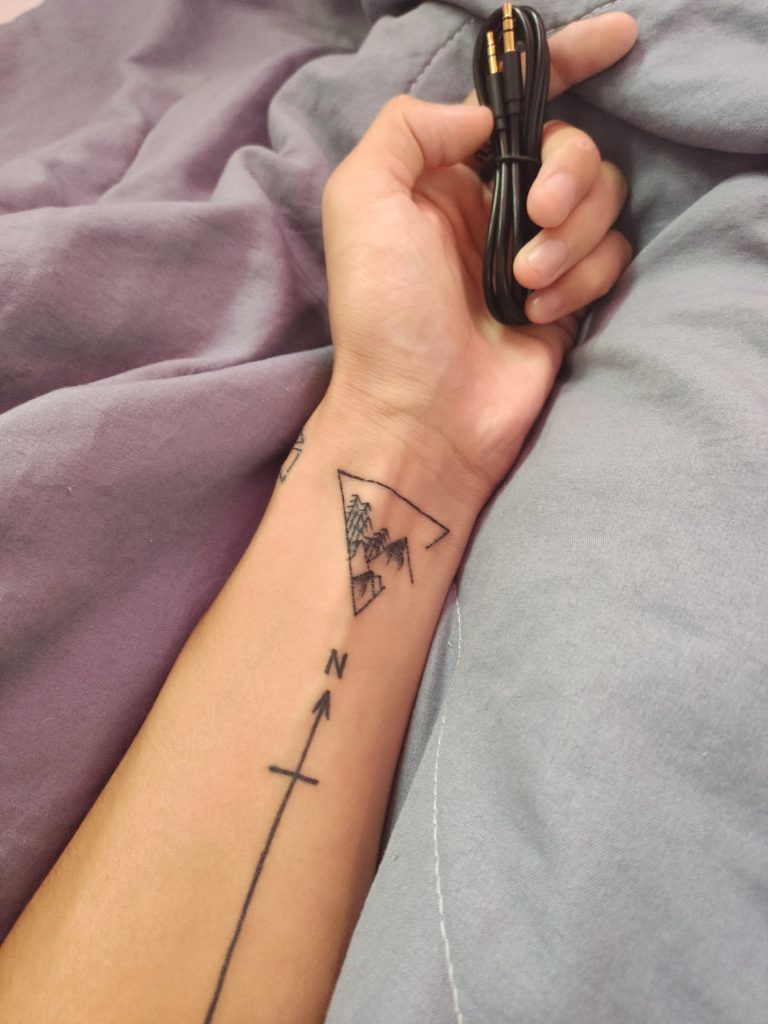
Qi stagnation produces a wiry pulse. As it affects the Liver mostly, you feel this wiry pulse first on the left wrist in the middle position, over the radial bone. In the image above, you’d feel for it under the top-left angle-point of the triangle. (I’ve no idea whether the drawings mean anything other than mountains!)
Although everyone gets Qi stagnation from time to time because it’s part of life, some types are more prone to it.
For example, if you know anything about homoeopathy – and whether or not you accept it! – it does describe different kinds of people and the kinds of ill-health they typically experience.
One particular type – described as Nux Vomica – is especially prone to qi stagnation:
You probably know people like this! Suitably adapted it applies to many women too! (By the way, I’ve quoted from Materia Medica by Dr S.R.Phatak, a text I consult very frequently.)
So far the symptoms are at the top of the body or upper end of the arms. Imagine standing with your arms stretched up above you. Qi stagnation symptoms ascend to hands or head – the upper parts. This is also where Liver qi ascends to when you first get stressed. There is an exception to this ‘ascending’ energy! Some people tap their toes. This displays another aspect of Liver qi stagnation: ‘Wind‘, which shows up as movement. |
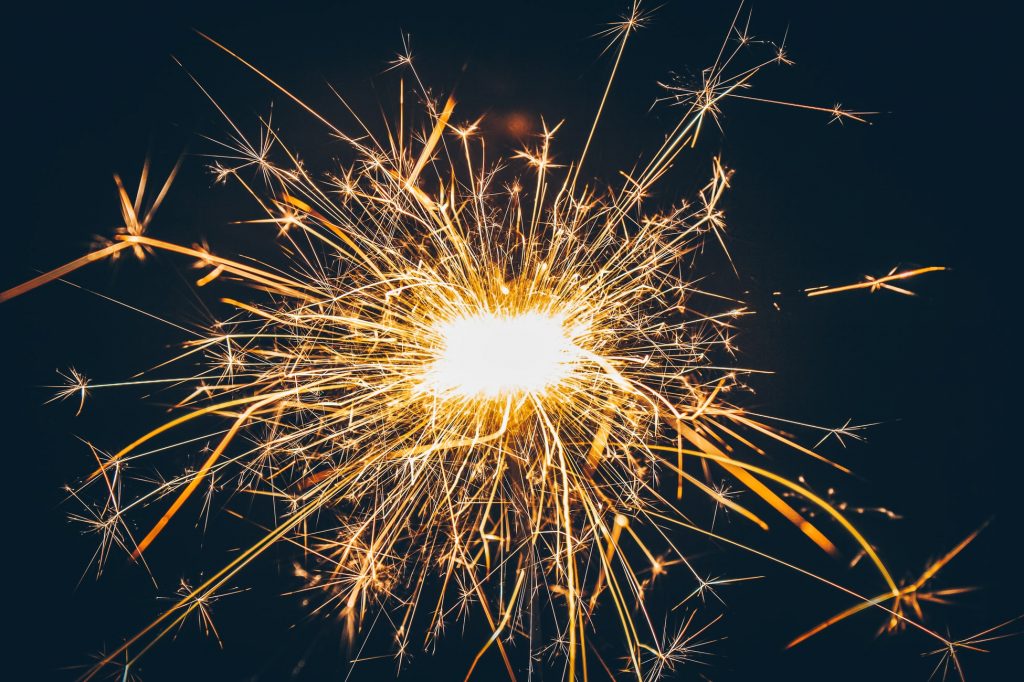
Then Stagnant Qi attacks Lung qi, so now not only are you sighing but it’s hard to catch your breath. Your chest feels stuffy, blocked, congested. Sometimes it feels itchy, too. Qi stagnation then transforms into either Heat, or movement and Ascending Qi.
(Think what happens to a balloon as you try to compress it. It pushes out in other directions, between your fingers – assuming you don’t burst it! Compression also makes it hot.)
If it changes form into heat, you feel hot, bothered, red-eyed, irritable, and it’s hard to sleep. If there is also phlegm (see below) then you get sinus, ear and gland problems, with heat too! (That means pain and offensive smells too! Sorry.)
If stagnant qi attacks Kidney qi, not only is there desire to urinate, but noises in the ear – tinnitus. (This is because, in Chinese medicine, the Kidney zang rules your ears and your hearing.) For some the pressure builds into hypertension, high blood pressure.
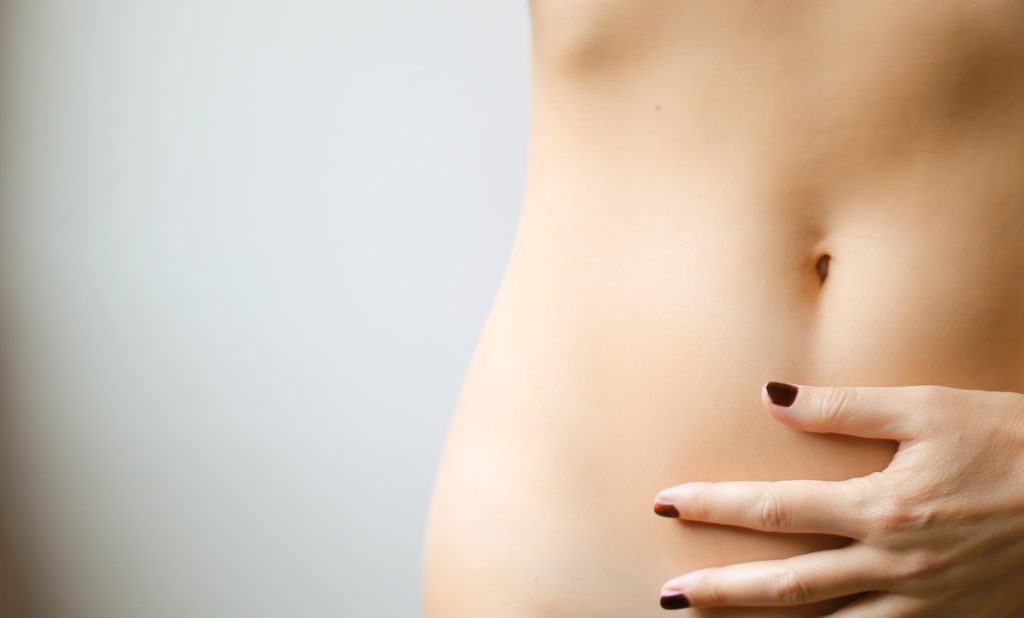
Qi stagnation presses onto your digestion and bowels.
So in your abdomen, you feel swelling or distension. This isn’t always from gas, but may be. When pressed the area may be sore, and the local distension may appear to move around. Almost like bubbles of stuff deep inside.
With distension comes a feeling of stretching, distension, cramping or burning. You want to loosen clothing and release tight belts. Sometimes you feel a band round your centre.
Circulation: feeling too hot, too cold, sweating even though you aren’t exercising.
Women get this distending, stretching sensation as qi stagnation builds before their menses. They may already be under mental pressure (from career and family demands). Now it’s physical too. And all the tension down there puts them off sex, a tragedy if they’re trying to conceive.
It often makes them weepy with frustration. But qi stagnation periods can be painful, very painful. (Eventually, as the qi stagnation spreads deeper, it can lead to Blood Stasis, with tangible lumps and stabbing pains.)
Until now, stagnant qi symptoms have been more transient. That means they haven’t affected you deeply, though they may have been uncomfortable. But now, the situation develops and you either can’t change or you can’t avoid what’s making it worse. Symptoms move to the interior of your body and mind. |
Sometimes this precedes and sometimes it follows abdominal symptoms.
What would you feel as Qi stagnation pressure expands in your chest?

The longer the stress continues the more likely becomes chronic damage.
For example …
So from being stagnant qi that tried to escape upward, it has now ‘attacked’ the centre, and your ‘spirit’.
That can lead to yang deficiency.
The longer it goes on the more Qi stagnation prevents Blood from flowing smoothly. That leads to Blood Stagnation. (You get Blood Stagnation anyway as you age, but try to delay its arrival for as long as possible!)
Examples of Blood Stagnation? Lots, but check Stomach Blood Stasis.
Qi stagnation can lead to Heart Qi Stagnation. You don’t want that! That can lead on to Heart Blood stagnation. (Yes, you’re right, that can look like heart attack or stroke.)
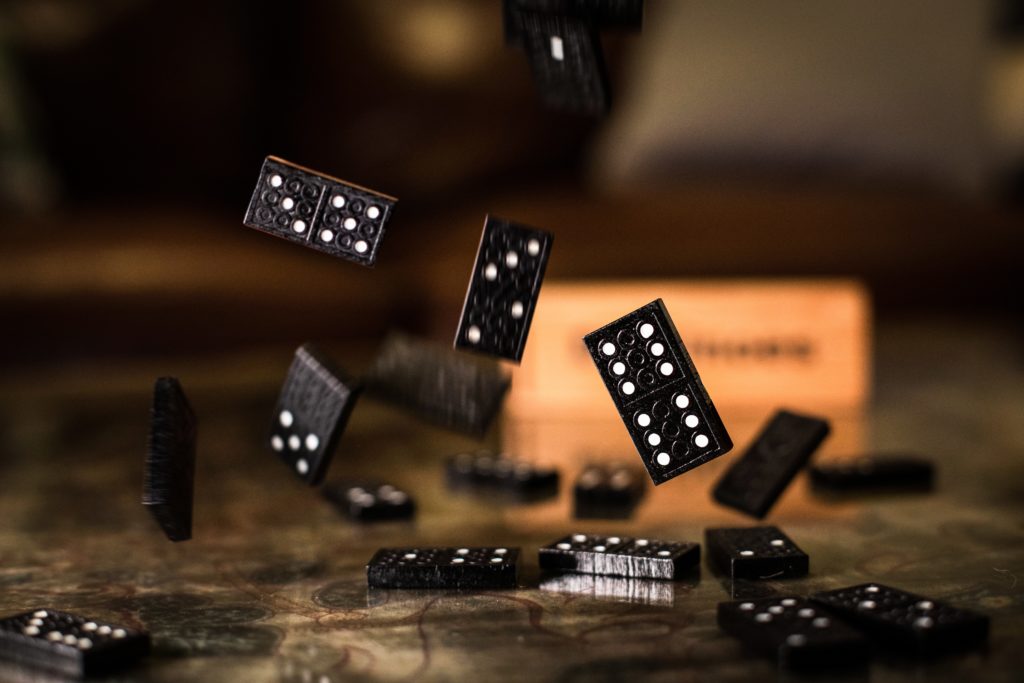
Well, first of all,
So, certain things make us worse, but to start with they make us feel better.

All such foods are high in calories, salt, sugar or sweeteners. Most are fattening and disturb healthy levels of our blood and acid/alkali levels. Long-term, clothes get tight and we become less attractive.
So: running, competitive sports, weight-lifting, vigorous swimming, skipping (some examples).
But a brisk walk or a quick bicycle ride both work for qi stagnation!

Also excellent are Tai Qi and Yoga, the former being preferable: Qigong is splendid. Why do I prefer Tai Qi to Yoga for qi stagnation? Only because it involves movement, where much of Yoga is static. (However, I confess that I do Yoga, not Tai Qi. But I often cycle, and walk a lot.)
The more you move your whole body and get out of breath, preferably from using your whole body, the better you’ll feel.
Getting out of breath is good. Anything that flexes your spine in all directions and makes you stretch, bend and reach is great.
Sex is good, unless your energy is low: the more movement the better so solitary masturbation may be not so good. If your energy is low or you find it exhausting, sex is not recommended. Read sexual impotence.
Well, of course, you need to change the situation that’s causing your problem, but that’s often easier said than done.
Sometimes you can walk away from it, take the loss – the ‘hit’, but begin to live again.

Social activity? We don’t mean activity using electronics (computer, cell-phone, telephone …Skype, Facebook, email …)!
Do it away from work if you can.
You can talk about what bothers you or just enjoy the company.
Yes, we did say ‘wine’ (and dine) up there, although it doesn’t have to be wine. If you can relax without alcohol or other drugs, even better.
As most of us know, the second glass of alcohol always seems a good idea after the first, and then the third? Well, it seems to come right after the second.
Better not to start. But a little alcohol does often temporarily help the symptoms of qi stagnation. If just a little of it helps you relax and enjoy the company faster, go for it. (If you must have more, drink water regularly in between sips of alcohol).
Suppose you have the symptoms of Qi stagnation and tension stops you sleeping?
What might help, besides the above (… did we mention exercise? I think we did …)
So what about …

Of course! They all help. But with meditation, practise before you get Qi Stagnation!
No point sitting down to meditate only after you feel tense.
Learn to meditate first, then you can use it when you need to. Here’s the link – again – to a meditation system that many use and which is thousands of years old, so ..it’s been tried and tested. Worth a try!
What if your problem is different, meaning that whether you are tense or not you cannot sleep? Click on difficulty falling asleep.

Stay in Touch!
No spam, only notifications about new articles and updates.

Book a Video consultation if you want to know more about your symptoms
When I started it, I expected to write no more than about 80 pages. Even so, rather more than just this page that you’re looking at!
So the book grew. People tell me that it is easy to read. Some say that my various enthusiasms help make it more interesting than you’d expect from the title.
And that title? Why call it such an obscure name, which most people don’t even know how to pronounce?! That’s because I am pretty sure that as Chinese medicine becomes well known in the West, some of its terms – like Yin and Yang, for instance – will come to be part of our language.
If I’m right, ‘Qi Stagnation‘ will become one of those terms and people will want to know what it is. Well, here’s the book!
To get better from a chronic condition needs treatment from outside oneself. For example, I recommend acupuncture. (Remember, Qi Stagnation is the Jewel in the Crown!)
In other words, if you have Qi Stagnation, how should you change your diet and what should you avoid? And why?
In developing over some 3000 years, Chinese medicine has had time to reflect on qi stagnation. Besides its recommendations about food, it has a range of possible therapies, including some great herbal prescriptions, but these need to be tailored to you, the individual.
While there is a basic formula for qi stagnation, there are lots of other, better, points and combinations of points, but how you use these depends on the particular patient and his or her idiosyncratic reactions to life.
Here’s the basic formula called the ‘four gates’. Why these points work is explained further down.
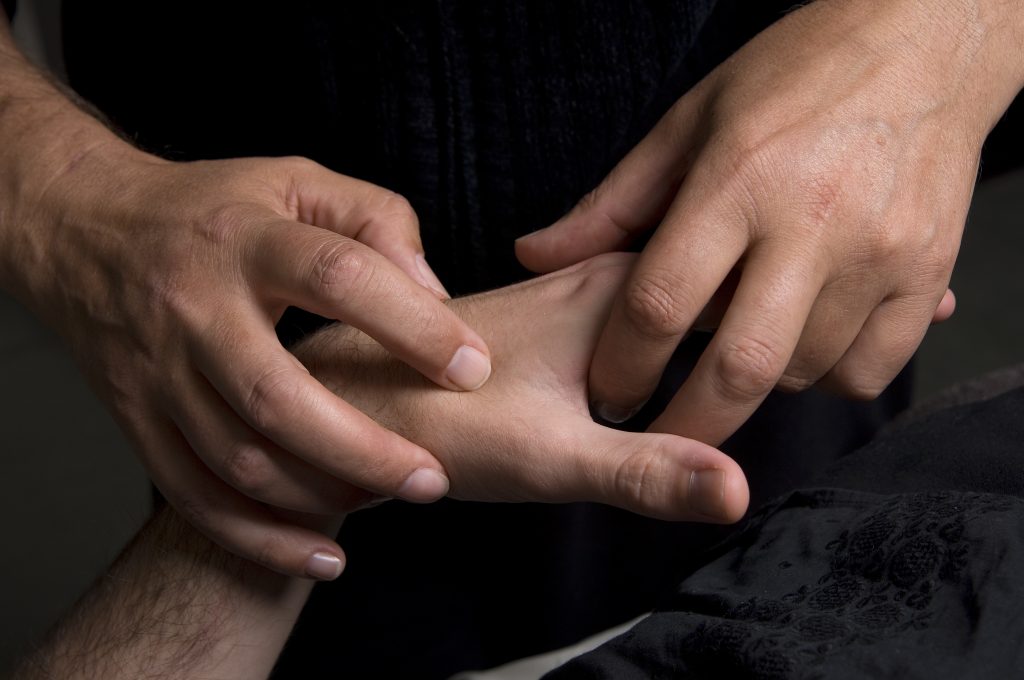
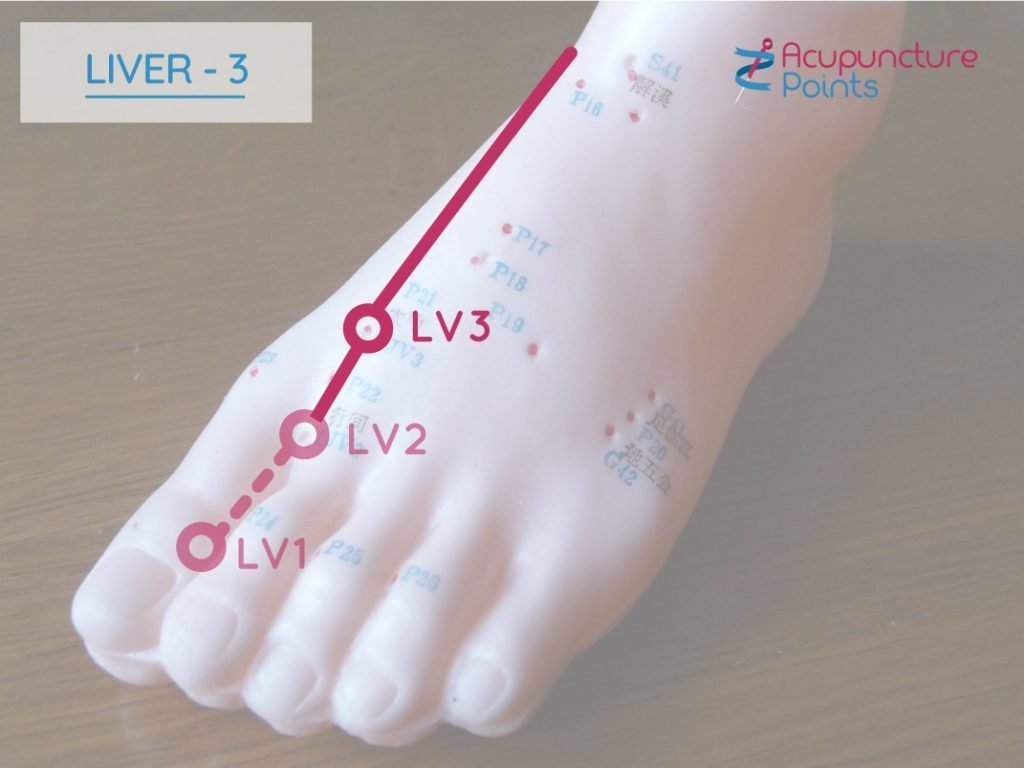
Finding better points or combinations of points depends on understanding how Qi stagnation is affecting the patient.
Qi stagnation –
Over some thousands of years acupuncturists have learned what acupuncture points do, and what can be done with them. Many books have been written on this.
When you read an acupuncture textbook you’ll find points have many properties. Among these are the abilities to
Of course they also affect the area near the point and the acupuncture channel on which they lie. Some acupuncture points lie on, or affect, several channels at the same time.
By combining points you may be able to do more than either could on its own.
By diagnosing the patient’s condition you can decide what action to take to help. If there is Heat, you would use a point to clear Heat. Better still, if you recognise on which acupuncture channel(s) the Heat is being generated, you’d choose points on that channel to clear Heat.
But you could do something else: instead of, or as well as, using points to clear the Heat you could use yin-cooling or Blood-strengthening points. If the patient was typically yin or blood deficient, or lived so as to weaken these sides of his health, it might be more important to boost these yin energies to stabilise the patient’s metabolism than to dissipate Heat. In other words, you would strengthen yin to ‘control’ or ‘anchor’ yang.
Think of it like a hot bath, its water too hot to enter.

What to do? You could wait for it to cool down, and hasten this process by opening the window and letting it evaporate faster. Or you could pour in more cold water. Adding more cold water is the yin-strengthening approach, whereas opening the window and letting cool air in to remove the heat is the yang dissipating approach. Read our page on balancing yin and yang for more on this.
Just doing that (ie yin-strengthening, like pouring in cold water) might be all that was needed. Result? – they’d feel steadier and calmer and more able to cope with the stress – and you’d have helped them without dissipating any of their energy.
After all, the Heat and Wind problems and discomfort caused by Qi stagnation are expressions or manifestations of the patient’s energy: they don’t come from somewhere else, though it might feel like it!
If the stress causing qi stagnation came from pressure to perform up to imposed targets, then, from a knowledge of 5 Element theory, one would nearly always treat Wood.
If the underlying cause came from a question of control, self-control, hysteria, or getting ‘high’, probably you’d treat Fire.
But if it came from ongoing worries, or caring for others, or dietary problems or poor food choices, then you’d treat Earth.
If it arose from inability to relate to position in the world, to let go of what’s gone, to stand back, but also to stand up for principles and standards: Metal.
If the underlying problem was to do with inherent genetic makeup, or the ability to relax, to allow time for the resting phase in life: Water.
So if someone gets qi stagnation from a broken relationship, one might consider Fire and Metal. Fire, because the personal integrity has been breached, Metal because of the changed relationship.
On the other hand, if someone cared for had died, perhaps the more pressing need would be to support Earth as well as Metal.
These range from insomnia to headaches to tension to bowel disorders to pain to breathing problems and circulatory disturbances – and so on!
Potentially more serious, for child-bearing mothers, is that insomnia depletes Qi.
That Qi deficiency can itself lead to Blood deficiency: together, Qi and Blood deficiency can lead to miscarriage. If the mother’s particular Qi deficiency is Liver Qi deficiency, the threat of miscarriage often occurs during the first three months of pregnancy.
The patient doesn’t realise the cause is Qi stagnation. They think their problem is the insomnia or at least, that’s what they want to be fixed! They’re not interested in something you call ‘Qi stagnation’.
But to ‘fix’ the insomnia, you need to deal with the Qi Stagnation. That means – depending on the personality and receptiveness of the patient – some advice, counselling or ‘re-education’.
Another frequent problem that accompanies Qi Stagnation is deficiency of Stomach and Spleen. In fact, I think such a pre-existing deficiency makes qi stagnation – particularly Liver qi stagnation – more likely.
As already explained on this page of Qi Stagnation, the acupuncturist has various ways of doing this.
Every one of these is a big subject.
If an acupuncture treatment is used too often on a given patient, it may become less effective.

In any case, if the patient always wants more of the same, probably the acupuncturist should look deeper and explore a more diverse strategy.
That will certainly make him work harder, but he’ll enjoy his work more. Otherwise it becomes repetitive and the practitioner gets bored and resentful.
Taking the Four Gates, let’s examine the points used and see what other points might work, either instead or better, depending on the diagnosis.
The more you know about the points the more creative you can be.
Liver 3 strengthens Blood and Yin, so calms and steadies Heat and tension. Other points that do this include – each in a slightly different way or with a different emphasis:
Large Intestine 4 disperses Wind and Heat, helps to balance fluids and restore balance between inside and outside (which is why it is used for attack by external pathogenic factors, like a cold) and sends energy downwards.
Here are other points that do something similar, although each with a different emphasis.
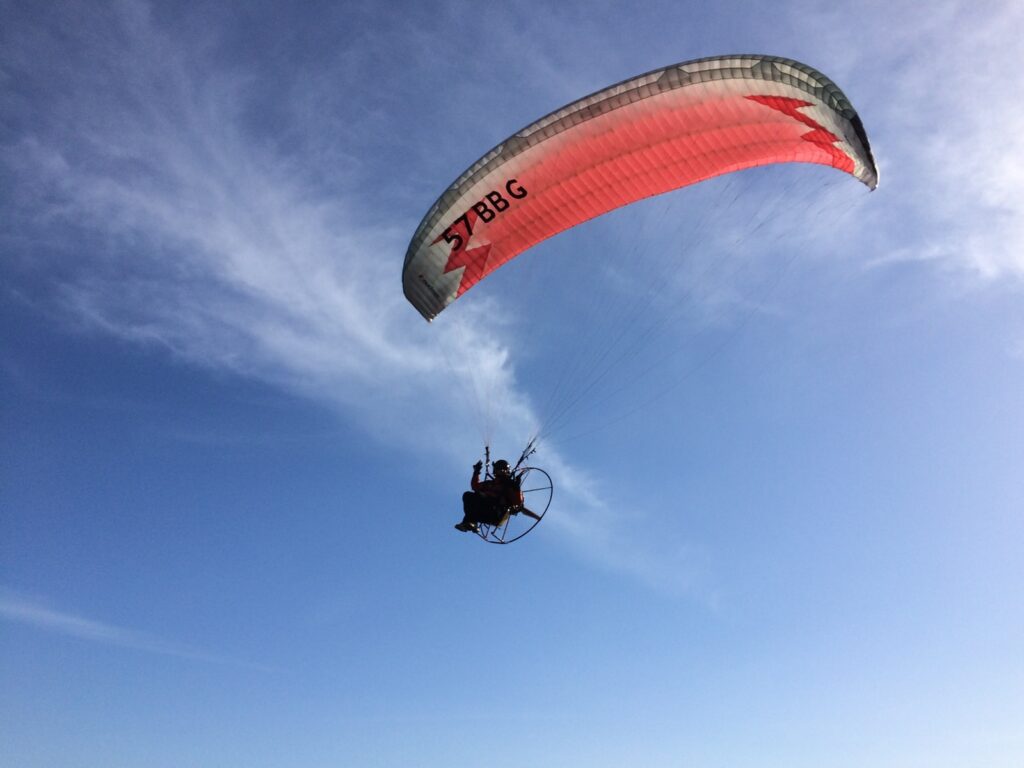
In addition, there are many points on the scalp that affect the Mind and send energy downwards and a few on the feet that ground it or pull it down.
Then there are the names of the points. For Liver 3 (Taichong) one might choose points with the word ‘chong’ (passageway) in their name to strengthen the Blood.
For Large intestine 4, if the main aim was to clear Wind, then points with ‘feng’ (Wind) in their name might be chosen.
Some points affect particular parts of the body. If you know where a problem lies, adding the appropriate point may increase the effect of our treatment.
These Command points come down to us from antiquity. They do work, but sometimes by palpating the area, say the abdomen, I have searched for and found an even more effective point, which often lies along the same channel as the Command point for that area, but not where expected. In other words, the point I’ve used is perhaps on the thigh or more distal on the leg distal to Stomach 36.
Similarly, there are groups of points in the ears with similar qualities, also on the forehead and hands.
As you see, there are many ways of treating qi stagnation with acupuncture.
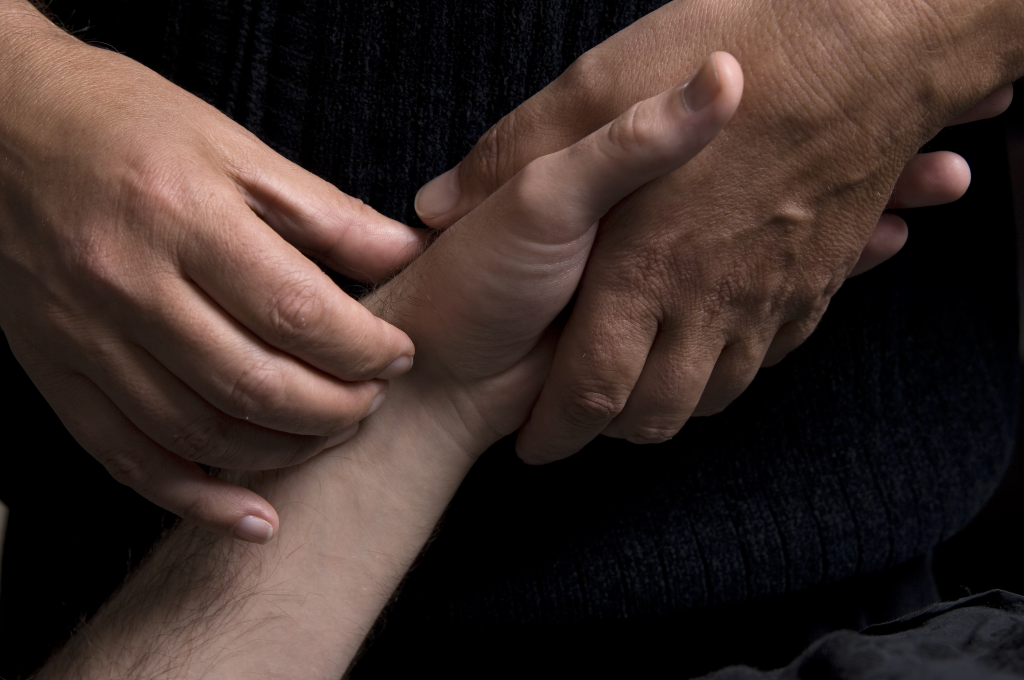
When I’m doing the acupuncture treatment, I take the patient’s pulse carefully before and usually during treatment, and keep an eye on their colour, demeanour and breathing, adjusting what I do as I go.
I also palpate the abdomen before and during treatment as this is also gives me great feedback.
This means it becomes an active participation between us, making me react as the treatment progresses. When I’m sure there has been as much change as I can expect, I leave the patient to rest and even doze if possible.
My preference, if I’ve made a good diagnosis, is to utilise 5 Element practice as much as possible. It’s economical and elegant and gives good results. However, it does require accurate diagnosis.
But – back to qi stagnation foods! – unless the patient makes an attempt to improve his or her diet, improvement, even from good acupuncture treatment, may be slow.

This Introductory Chinese medicine course introduces you to the amazing thinking behind this ancient medicine, now increasingly in demand.

The Scottish College for Chinese medicine provides introductory courses for all, explaining Chinese medicine and its cultural background.

Master Tung’s acupuncture is a hidden treasure, lost to China but recovered in Taiwan from where it spread round the world.

Knee pain has five main causes. It’s certainly worth trying acupuncture before you resort to surgery!
Subscribe to the Newsletter
If you are interested in understanding how Traditional Chinese Medicine can improve your life sign up to my newsletter for the latest updates.
Subscribe to the Newsletter
If you are interested in understanding how Traditional Chinese Medicine can improve your life sign up to my newsletter for the latest updates.
5 Responses
Hello, nice article, especially thank you for the list of recommended foods, I would just like to know why there are foods in the list that support yang, such as qinoa or cinnamon, thank you for the explanation.
Hi Lubomir
Thanks for your question and I’m glad you like the article on Qi Stagnation.
Quinoa does indeed tonify qi and yang, but if you look at the channels it enters, Kidney and Pericardium, these are often under strain when Liver qi stagnates. Kidney is the Mother of Liver and Pericardium the Child. Think of a tense twenty-year-old mother who lives at home with her Mum and has already had a child. If either Mum or child – or worse, both of them! – are undernourished or having problems it will tend to make the 20-year-old mother worse.
But if you can keep the Mum and child well it will, one hopes, help to stabilise the mother. Were Mum and child also going off the rails, it would be harder to steady the mother.
Also, the nature of quinoa is sweet and sour. The sweet taste helps to stabilise Earth and the sour taste benefits the Liver.
Cinnamon is different.
It’s a herb, not a food, like quinoa. So you need much less of it and Chinese herbalists classify it among herbs that warm and release the Exterior.
This means that it disperses symptoms like wind-cold-damp which often bind the gallbladder channel, easing out tense shoulders, for example. The same function helps dysmenorrhoea, especially from cold or tension.
More important is that it adjusts the balance between the protective (wei) and nutritive (ying) energy functions. Read more about this on our page https://www.acupuncture-points.org/nutritive-and-defensive-qi-disharmony.html
It also eases the flow of yang qi in the chest, helping one to breathe more freely, often a problem if you’re tense from qi stagnation.
Usually one takes cinnamon as part of formula of herbs, each of which helps the others. The cinnamon one buys as a cooking herb is less powerful, but even so, one would usually combine it with other flavours in a dish.
One would not use the herb cinnamon in a strong excess yang condition such as when there was Heat in the Blood, or for a warm febrile condition. It is a herb for cold, tense conditions.
Your question exposes the problem of making lists! Really every item listed should have a longer description to explain its presence. Like acupuncture points, every food or herb has its own qualities and the two thousand-plus years of experience is there for our potential benefit.
Best wishes
Jonathan
Absolutely clear 🙂 Many thanks Jonathan
thanks a lot for this information. i have suffered from phlegm since my 20s as a result of second hand smoke from a stove which destroyed my sinuses, throat and lungs. i cannot sleep todate as phlegm is still a problem. i am off all fats and fried foods; i use olive oil and little. phlegm cannot go away and worse when finished eating! i have halitosis as phlegm is stuck in my head, tonsils, throat that i REMOVE it using fingures!!!!!!!!! ENT doctors have failed and made it worse by removing my nose turbinates!!!!!!!!! i only use honey. Please, do you have anything that can cure or help me? I am now 52yrs old female. Please reply. i also need to buy your books on managing stress.
Sorry to hear about your phlegm. It seems the smoke and Heat damaged not just your sinuses but also your Stomach’s ‘descending’ energy and your Lungs’ dispersing/diffusing facility.
So stuff that should descend and pass out through your digestion fails to descend – a kind of nausea or reflux of phlegm. This Stomach function of ‘descending’ and your Lungs function of dispersing is easily worsened by stress, anxiety and other emotions which upset your Liver energy. (Your Liver energy then overwhelms your Lungs’ and Stomach’s normal functions, so all this probably affects your appetite too. Read my page on the Five Elements, in particular the paragraph on the ‘ke’ cycle.)
There may also be an accumulation of ‘Damp‘.
Probably, all this phlegm is an attempt by your body to apply a kind of salve over the burnt tissues.
Of course I’d be very happy if you bought my book on Qi stagnation and Stress (!) but on this occasion I would instead suggest that you bought Andrew Sterman’s book “Welcoming Food’ volume 1 and look up the pages on phlegm (check its index). He lists the kind of foods and herbs that might hinder or help you. My book “Yuck Phlegm” may help too.
However, you’ve had this problem a long time and I think you may need some individual treatment, probably with Chinese herbal formulae, though acupuncture may also help.
If the underlying cause was indeed ‘Fire’ this may also be an occasion to see a homoeopath who may be able to find a homoeopathic remedy that matches the damage originally done to you.
However, I doubt you’ll get sudden cure, whatever you try. Phlegm of your sort can be difficult to treat, even with a solid theory behind it, because your body tissues were so badly damaged originally and then possibly also by the surgery: it makes it difficult for your body to navigate its way back to health over so many damaged bridges.
Sorry not to be more positive.
Best wishes Jonathan